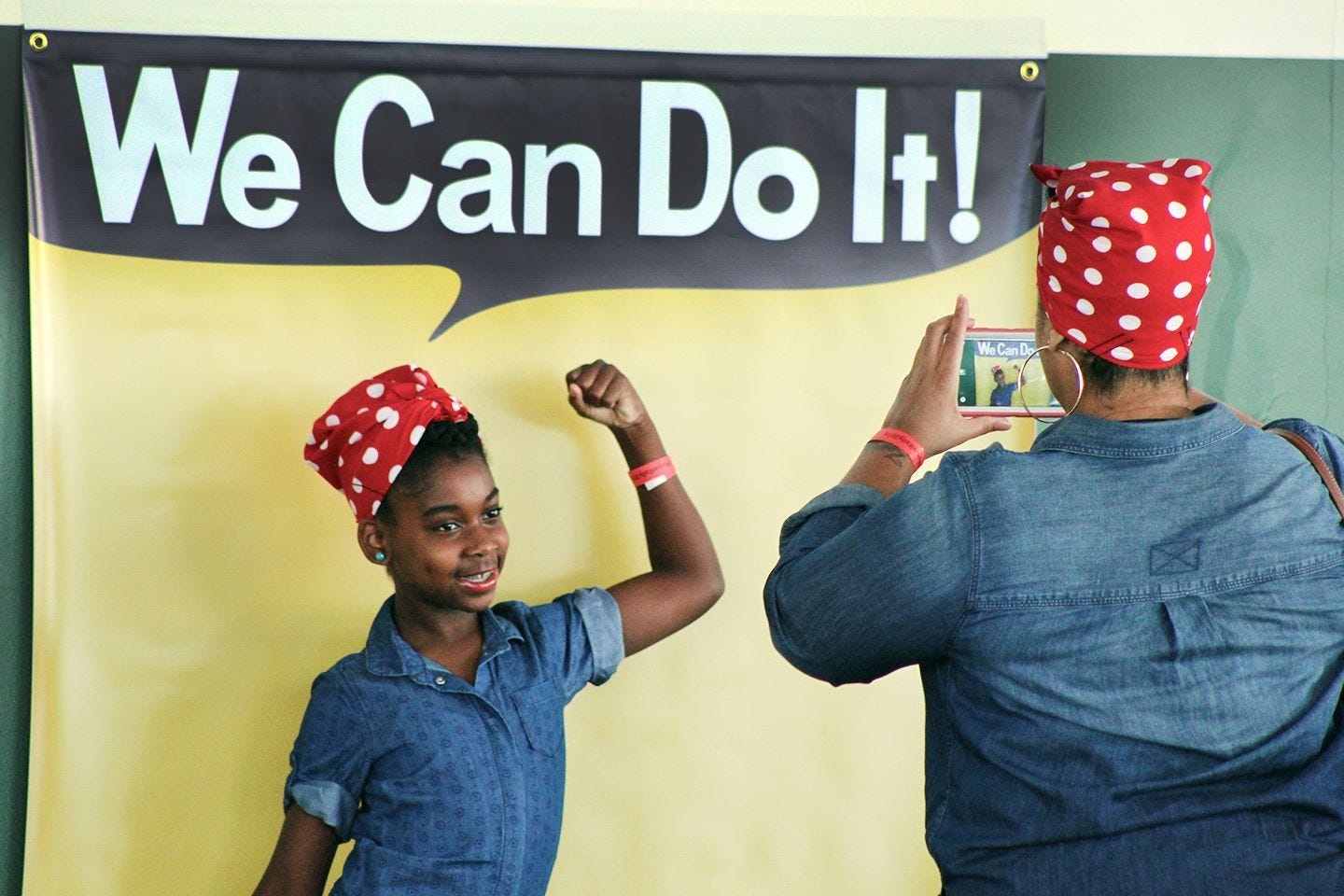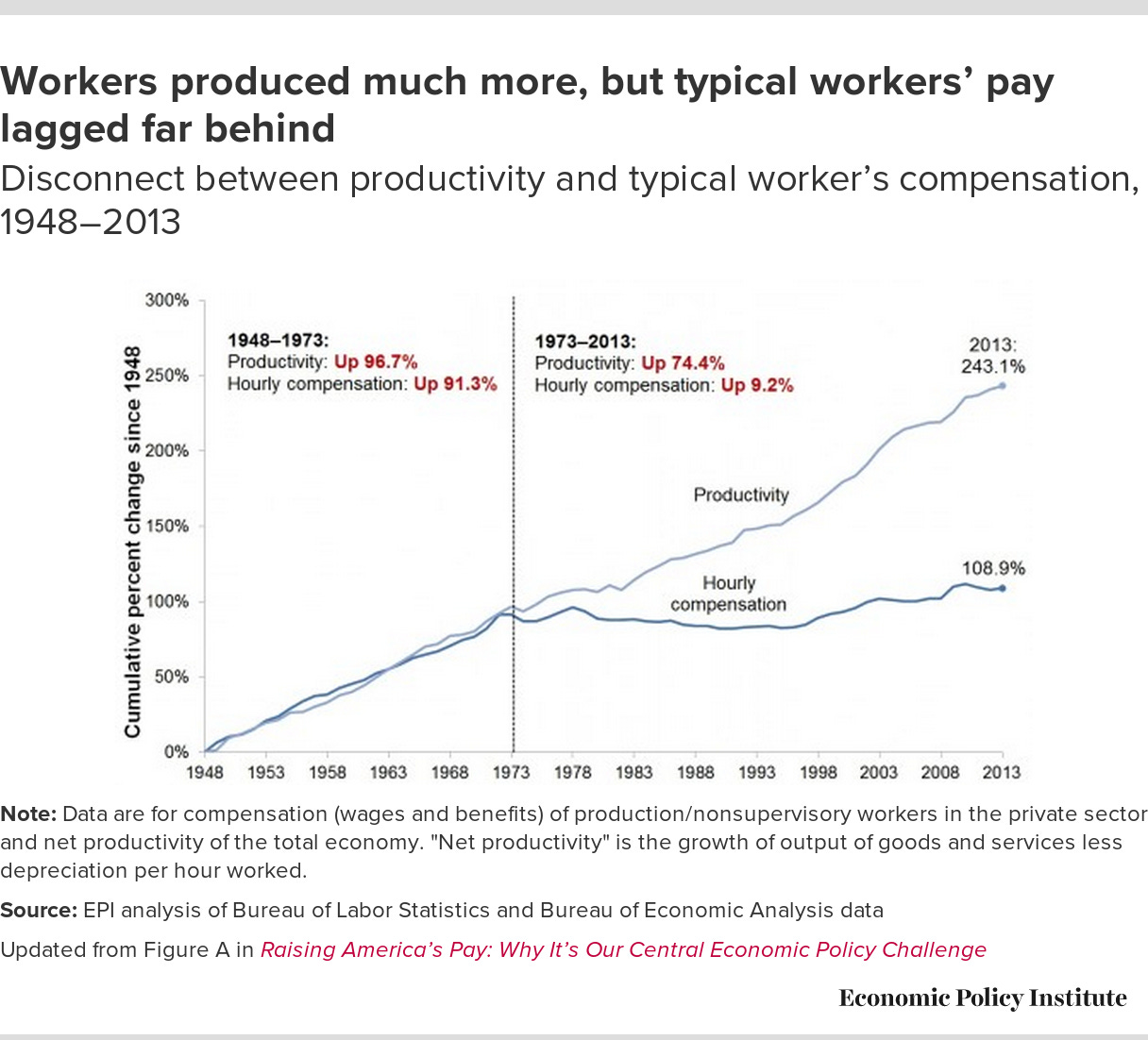The Radical Politics of Auntiehood
To effectively advocate for policies that prioritize kids, we need more capacity, and to increase our capacity, we just might need Aunties.
In my last couple of newsletters, I’ve written about the personal side of Auntiehood. I wrote about the joy of having kids in my life who aren’t my own. I wrote about the sorrow of not being able to have children when you really, really want to. In today’s newsletter, I turn to the politics of Auntiehood, and why I believe being an Auntie can be a radical political act.
The American nuclear family is unsustainable – just ask the U.S. Surgeon General. Over the past several decades, people have had to work harder and more hours for less real income. Parents arrive home from work to the immediate needs and demands of their kids, and then those same parents (the moms especially) attend to those needs and demands until the kids go to bed. This isn’t how human families and caretaking are supposed to work. It’s not how humans are built.
For most of human history, in most societies, we lived and raised children in intergenerational communities and households, and labor was shared among many adults as well as with the older children. Different cultures distributed work according to different systems, of course, but there would have been multiple people to grow or procure the food, multiple people to prepare it, multiple people to maintain the structures and land, and multiple people caring for children as well as the sick and elderly. And the childcare workload would have been lower overall, because as any parent who’s gone on a multi-family camping trip can tell you, when there are lots of kids around, they will largely entertain and take care of each other.
The kinship- or community-based household differs widely from the nuclear-family-based household, and they produce different social outcomes. The kinship model requires everyone to pitch in and support one another, and people may know what’s needed simply by virtue of being around one another. When someone gets sick, we know it because they don’t show up for dinner. When someone has a baby, we know it because we’ve been around them through their entire pregnancy and we may even hear their cries in childbirth. It’s easy to leap into action and provide support when we know what’s happening in each other’s lives. And when we share the load we also share the resources, so we don’t need to buy so much, so we don’t need to work so much. In this way, kinship-based communities free up our capacity and let us focus on the things that matter to us.
By contrast, the nuclear family model expects each household to fend for themselves. We have little idea what our neighbors need because we may not even see them from one month to the next. Shoot, it’s common in our society to have a new baby – or even to get sick and die – without our neighbors having any idea, even when they would absolutely want to know. We might help each other out a lot more if we knew when help was needed. So the more we have to do on our own, the more we need, and the more we buy, and the more we work. In this way, the nuclear-family based society functions to generate profit, but impoverishes us in terms of meaning or connection.
How do we get from the capitalist churn to the beloved community? It’s easy to feel helpless right now. Climate catastrophe, school shootings, mass incarceration, income inequality, racial inequality, a broken healthcare system, money for war but not for childcare, and huge swaths of the country who are ready to vote for a man who falsely accuses immigrants of eating household pets – all of these affect kids. They harm the kids closest to us as well as those on the other side of the world. How can we change course?
We need policy solutions, to be sure, but these take time, organization, and advocacy. When it comes to policy affecting kids – i.e., most or maybe all social policy – many of the people most motivated to organize for change – i.e., parents – are extremely busy and extremely exhausted. To effectively advocate for policies that prioritize kids, we need more capacity, and to increase our capacity, we just might need Aunties.

When friends and family who don’t live in the same household start pitching in to help raise a family’s children, we move society in a kinward direction. This model is actually already prevalent in the United States, sometimes thanks to Aunties, but more often thanks to grandparents – especially grandmas. In addition to the 4% of American kids being raised by a grandparent, millions more kids spend a lot of time being cared for by their parents’ parents. I know several families for whom grandmothers provide a lot of regularly-scheduled childcare, and the parents often say they simply, utterly could not make things work without their mom’s help.
In dominant U.S. society – as typified by the white middle class – we tend to think of grandmothers as the only people who step up for families on that level. But it’s not inevitable that families can only get significant (unpaid) help if they’ve got a willing and capable grandmother on hand. There’s no reason non-family members can’t behave like kin. Indeed, I believe there are many would-be Aunties out there, and I know for a fact there are many families who are desperate for support. In a future post, I’ll offer suggestions about how prospective Aunties and overstretched families might connect with each other, as well as ideas for strengthening Auntie-to-family relationships that already exist (whether nearby or far away).
Being an Auntie is a radical political act because it disrupts the economic structure that exploits nuclear families. We don’t have to wait for policy change to start building kinship networks today. Many of us are already working on it.
New Feature! Links and Tips of the Week
Salad-making tip of the week. Toast some pumpkin seeds (or chopped walnuts or slivered almonds or sunflower seeds) on the stovetop over low heat for a few minutes. Use a cast iron pan if you have one. Remove from heat when the seeds/nuts start to brown and become fragrant. Sprinkle them on your salad. It will taste so much better. Everyone will be like, “ooooh, what are we, at a fancy restaurant??”
2023 SNL sketch of the week. Bowen Yang is a national treasure.
Anti-capitalist tip of the week. Don’t buy toiletries that come in a plastic bottle with a pump dispenser. The pump part can only go to the landfill, and you can never reach the last 10% of the bottle’s contents, so then you think you’re going to decant it into something else but you never do, and then eventually it ends up at the back of the cabinet under your bathroom sink or else you throw it away still 10% full without recycling it because there’s still stuff in it that’s hard to clean out. Meanwhile the company got full price for a product that you have to buy again after you’ve used 90%. Say no to these shenanigans. Down with pump dispensers!
xckd comic of the week. I always love the xkcd comics with this format.
Substack newsletter of the week. Hamilton Nolan is a labor journalist who writes the newsletter How Things Work. A recent post is helping me think about my individual responsibility in the face of structures and systems that feel far beyond my control. He writes: “The true work of political action is not to identify idealized superheroes to run for office. It is, instead, to create the conditions in the world that make it safe for the cowards to vote the right way.”
Pear selection tip of the week. Boy, you could really use a tasty pear when you go grocery shopping later. What you want is one where it’s soft around the stem. (I recently learned this pear-tip tip from my dad and it has seriously improved my pear-eating experience this month).
Super sad terrible bummer of the week. Seattle Public Schools is closing 20 elementary schools due to not having enough money, and the list of which schools are closing just came out. This is major for thousands of Seattle families, not to mention teachers and school employees. Some families are trying to organize to keep *their* school open, presumably at the expense of closing someone else’s school. Others are trying to organize to keep all the schools open, which would require either a state income tax or taxing the rich. The former requires a level of political will that Washington state has never yet managed to muster, and the latter necessitates defeating a bunch of billionaires and their massive tech companies. Time to roll up our sleeves and get organizing.
Now, lest we lose sight of life’s little joys, here’s the cute kid video of the week.




